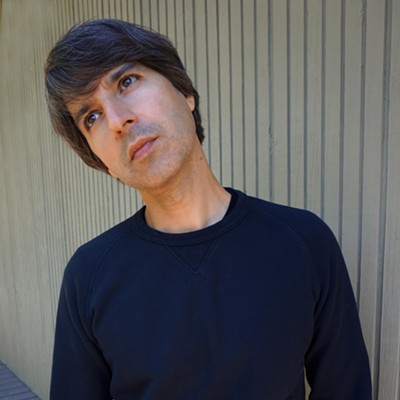Ask this question to Eric Schlosser, especially in the context of fast food, and you may find the answer to be a resounding yes. Schlosser is the author of Fast Food Nation, a muckraking modern descendent of Upton Sinclair's The Jungle. Besides being a book that everyone who likes Super-Duper-Mega-Value Meals--or processed beef in any form--really ought to read, Schlosser's exposé attacks some of the real problems with food: politics and society, as Saturday's UA Health Sciences Center forum title suggests.
Headlined by Tucson's very own Dr. Andrew Weil, the public forum rounds out a sold-out major health professional conference. Fortunately, tickets were still available as of this writing for the public session. The topic focuses on the "obesity epidemic" and numerous other health problems that are growing more prevalent in our increasingly nutrition-oblivious society.
The effects of these problems are apparent; this forum will explore the slightly more elusive causes. Traditionally, much-maligned fats and carbohydrates have been the scapegoats, but the root cause is much more complicated than that. Over time, the food we eat has been altered so radically from refining and processing that these new, unnatural forms do not interact well with the human body, leading to health problems.
Judith Brown, director of community affairs and development for the program of Integrated Medicine, sees the topic as timely and important.
"I think that the issue of proper nutrition, the increase in Type II diabetes and the national media focusing on obesity, particularly in children, are just a few warning signs to the community at large that eating healthy is an issue that needs to be discussed," she says.
The health forum features three main speakers: Weil, Schlosser and Michael Pollan. Weil, the director of UA's Program in Integrative Medicine, is a renowned doctor and expert in nutrition and health. He presents the health implications of food technology and industrial farming. Schlosser will focus on the social, economic and environmental impacts of the fast-food industry. Pollan, an expert on agribusiness, rounds out the triumvirate. He will discuss the realities and dangers of agribusiness, from the genetic engineering of potatoes to the factory farming of beef.
Weil is well-known as one of the pioneers of the idea of integrative medicine, described on the program's Web site as, "healing-oriented medicine that takes account of the whole person (body, mind and spirit), including all aspects of lifestyle. It emphasizes the therapeutic relationship and makes use of all appropriate therapies, both conventional and alternative."
Weil founded the Program in Integrative Medicine in 1994, and it has blossomed at UA. Brown sees it as a great asset to the community.
"We in Tucson are proud to have the first program of Integrative Medicine as part of the University of Arizona College of Medicine. The program is training doctors worldwide as leaders, and they are starting integrative medicine centers at other universities."
Although the forum's discussion will touch upon serious health problems facing the American public, the picture is not hopeless; the experts will describe steps that can be taken to mitigate the dangers of poor nutrition and disease. In turn, the increased awareness can be beneficial for mind and body.
"As people are looking at their own diets," says Brown, "there are things they can do: They can follow an anti-inflammatory diet, be mindful of some of the risks of cancer and heart disease, and in general, the more people know about nutrition, the more they can take care of themselves and stay healthy."
The Food, Politics and Society forum takes place at 2 p.m. on Saturday, March 13, at the Hilton El Conquistador (10000 N. Oracle Road). Doors open at 1 p.m. Tickets are $30 at the door; call 626-2468 for information.







